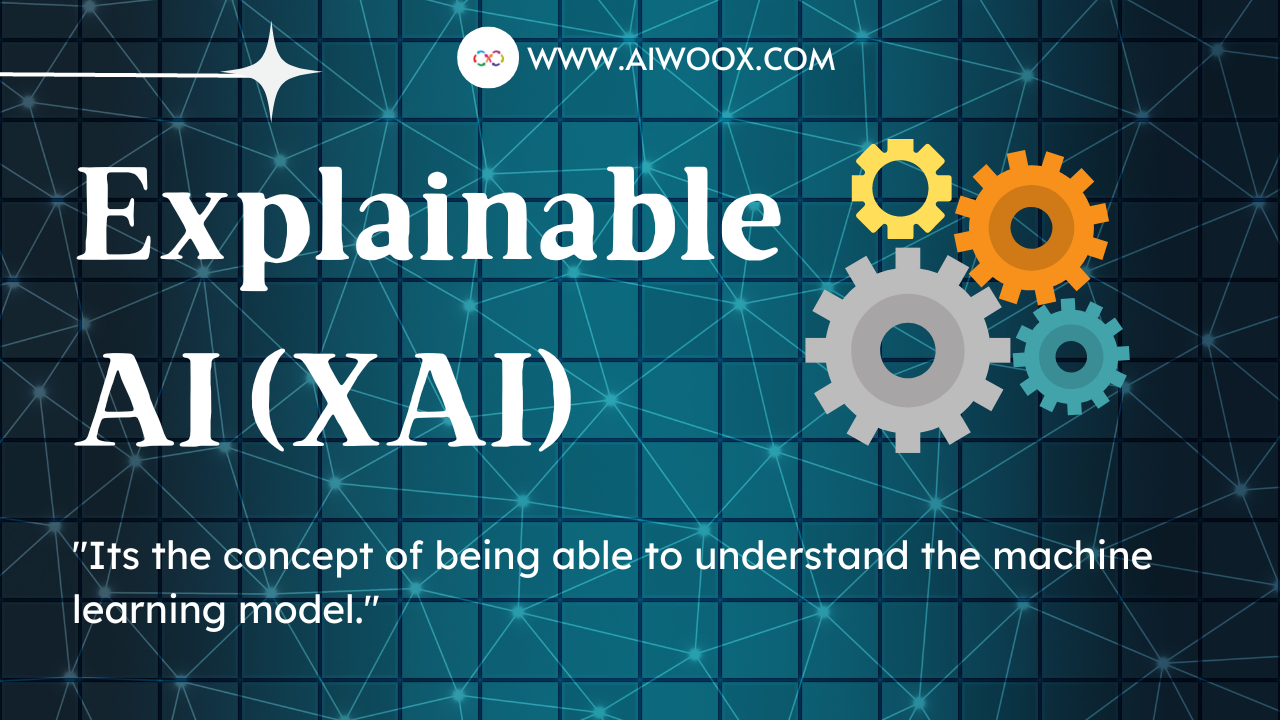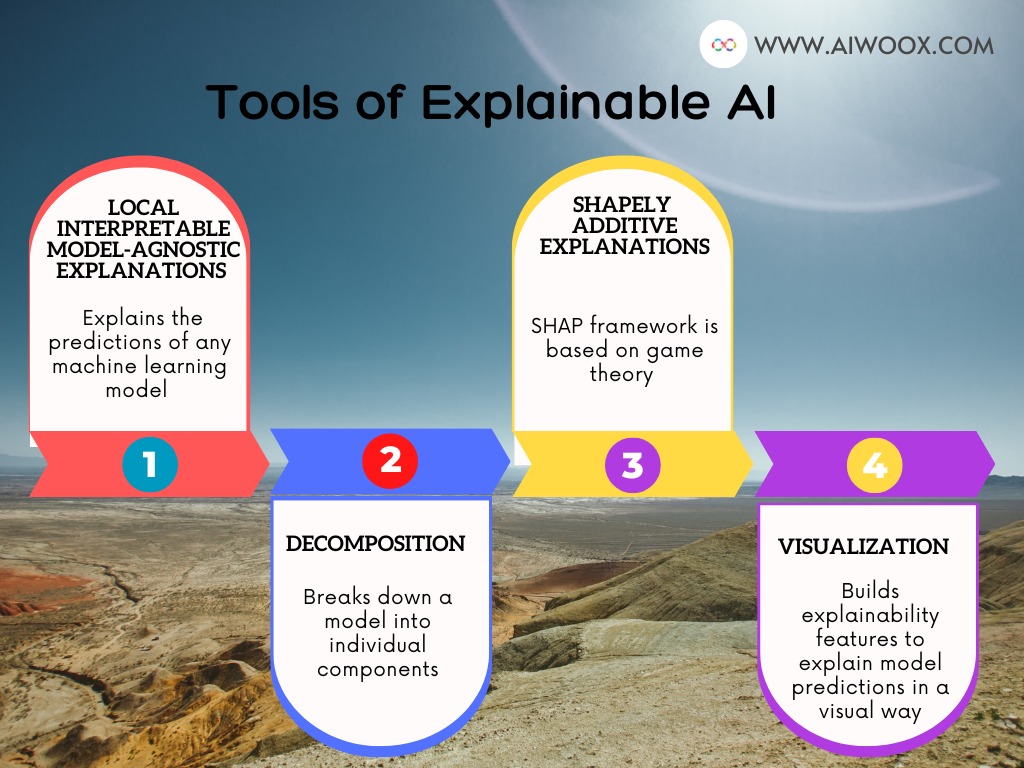What is Explainable AI (XAI)?
“Machine learning algorithms” output and outcomes can now be understood and trusted by human users. All thanks to a set of procedures and techniques known as explainable artificial intelligence (XAI). An AI model, its anticipated effects, and potential biases are all described in terms of explainable AI. It contributes to defining model correctness, fairness, transparency, and outcomes in decision-making supported by AI. When putting AI models into production, a business must first establish trust and confidence. A company can adopt a responsible approach to AI development with the aid of AI explainability.
However, the effectiveness of these systems is limited by the machines’ current inability to explain their decisions and actions to human users. More intelligent, autonomous, and symbiotic systems are needed to meet the difficulties that the Department of Defense (DoD) is now confronting. If future war fighters are to comprehend, adequately trust, and successfully manage a new generation of artificially intelligent machine companions, explainable AI—especially explainable machine learning—will be crucial.
The Explainable AI (XAI) program aims to create a suite of machine learning techniques that:
- Create more understandable models while keeping learning performance at a high level.
- Enable human users the ability to comprehend, properly trust, and efficiently control the new breed of artificially intelligent companions.
New machine-learning algorithms will be able to justify their actions, identify their advantages and disadvantages, and provide a sense of how they will act in the future. The approach to accomplishing that objective is to create new or altered machine-learning approaches that will result in more comprehensible models. These models will be used in conjunction with cutting-edge human-computer interface technologies, which may convert the models into helpful and clear explanation dialogues for the user.
Why is Explainable AI important for the future?
Bias and injustice are drawbacks of AI. These will eventually lead to trust concerns with AI. AI that is both explainable and understandable can help address these issues. Explain ability techniques are rapidly gaining popularity in this area because they are predicted to improve human-machine interaction, promote more responsible technologies (such as autonomous vehicles), and foster more trust between humans and machines. Transparency regarding the model’s decision-making process can be achieved by explaining decisions made by artificial intelligence systems. Explainable AI, for instance, may be used to justify an autonomous vehicle’s decision not to stop or slow down before colliding with a pedestrian crossing the street.
Use cases of Explainable AI:
- Healthcare: Explainable AI can provide an explanation for a patient’s diagnosis while diagnosing them with the disease. It can assist doctors in explaining to patients their diagnosis and how a treatment plan would benefit them. By avoiding any potential ethical pitfalls, this will help patients and their doctors develop a stronger sense of trust. The identification of pneumonia in patients may be one of the decisions that AI forecasts can help to explain. The use of medical imaging data for cancer diagnosis in healthcare is another instance of how explainable AI may be very helpful.
- Manufacturing: Explainable AI could be used to explain why an assembly line is not working properly and how it needs adjustment over time. This is important for improved machine-to-machine communication and understanding, which will help create greater situational awareness between humans and machines.
- Defense: Explainable AI can be helpful for applications in military training to explain the thinking behind a choice made by an AI system (i.e., autonomous vehicles). This is significant because it reduces potential ethical issues, such as why it misidentified an object or missed a target.
- Fraud Detection: Explainable AI is important for fraud detection in financial services. This can be used to explain why a transaction was flagged as suspicious or legitimate, which helps mitigate potential ethical challenges associated with unfair bias and discrimination issues when it comes to identifying fraudulent transactions.
- Autonomous vehicles: Due to widely reported mishaps involving autonomous vehicles, explainable AI is becoming more and more crucial in the automobile sector. Explainable AI can be applied to autonomous vehicles, where it can boost situational awareness in the event of accidents or other unforeseen circumstances, potentially resulting in more responsible technology use (i.e., preventing crashes).
- Loan approvals: Explainable artificial intelligence can be used to explain why a loan was approved or denied. This is important because it helps mitigate any potential ethical challenges by providing an increased level of understanding between humans and machines, which will help create greater trust in AI systems.
Benefits:
- When used in cases with accountability, explainable AI is preferred. For instance, explainable AI might make it possible to develop autonomous automobiles that can defend their choices in the event of a collision.
- When there are circumstances concerning fairness and transparency and there is sensitive information or data involved, explainable AI is essential (i.e., healthcare).
- Increased confidence between people and machines
- More transparency in the model decision-making process (which helps with transparency).
Challenges:
- Explainable AI is a very new field of study, and explainable models still face many current issues. Because explainable artificial intelligence systems typically perform worse than non-explainable or “black box” models, explainability might sometimes come at the expense of model accuracy.
- One of the key challenges in Explainable AI is how to generate explanations that are both accurate and understandable.
- Another significant issue with explainable artificial intelligence is that, in comparison to non-explainable machine learning models, explainable AI models may be more challenging to train and optimize.
Conclusion:
One of the essential components of responsible AI, a framework for applying AI techniques on a broad scale in actual businesses with justice, model explainability, and accountability, is explainable AI. Organizations must integrate ethical concepts into AI applications and processes by creating AI systems based on trust and transparency to aid in the responsible adoption of AI.


